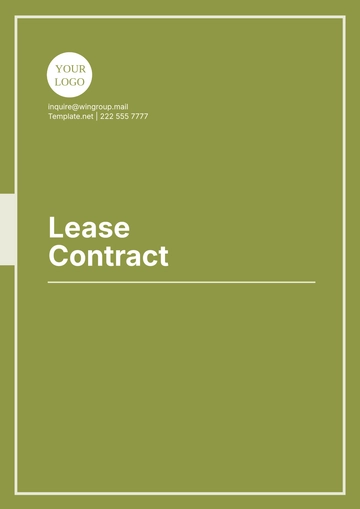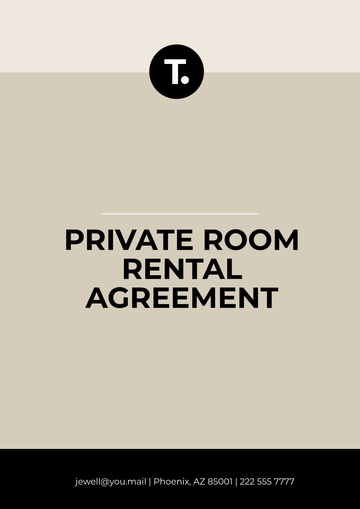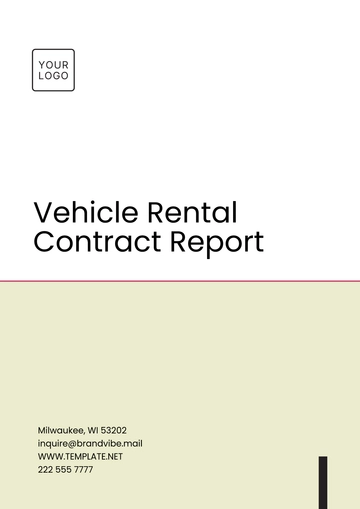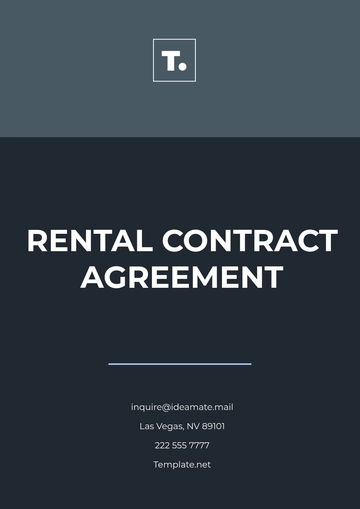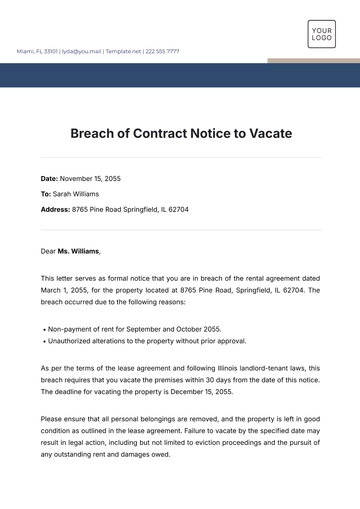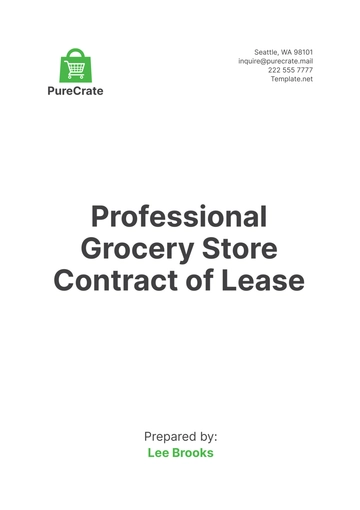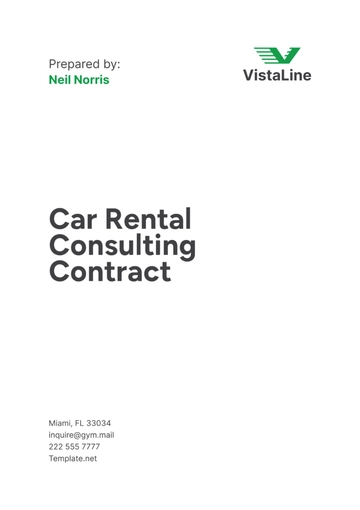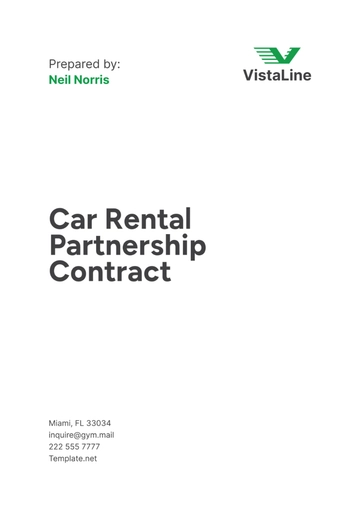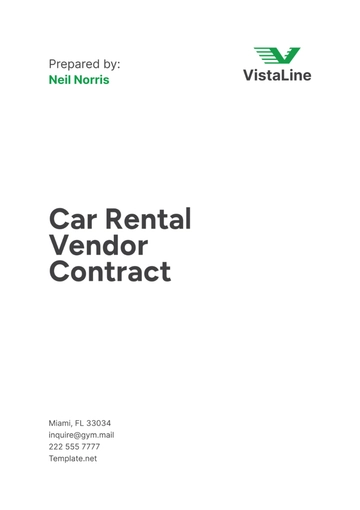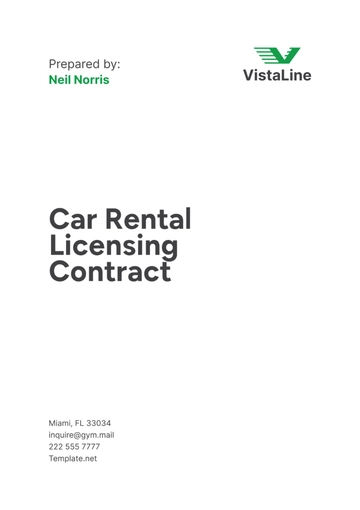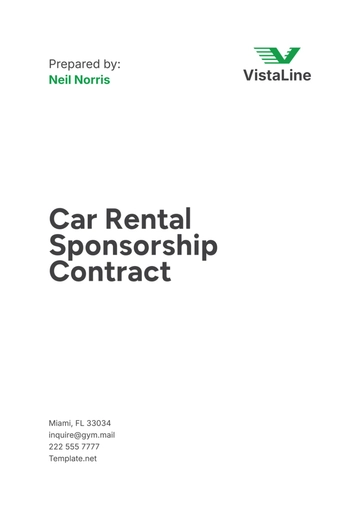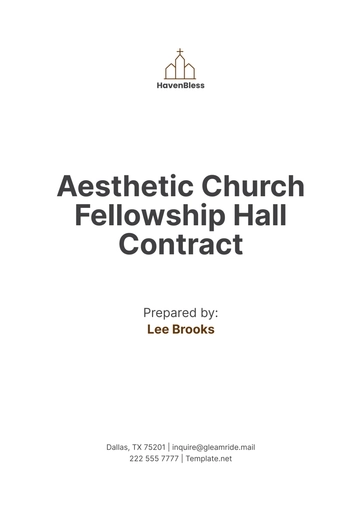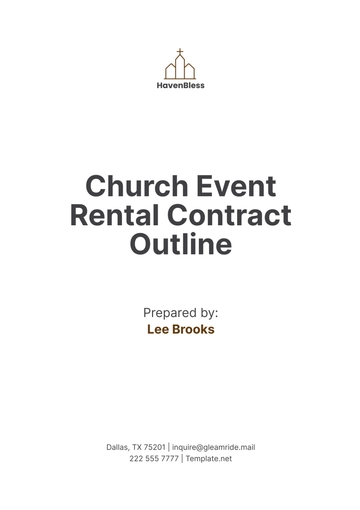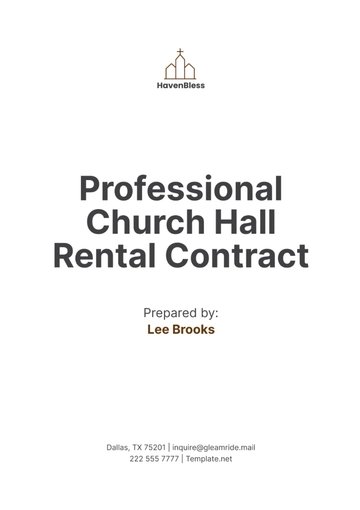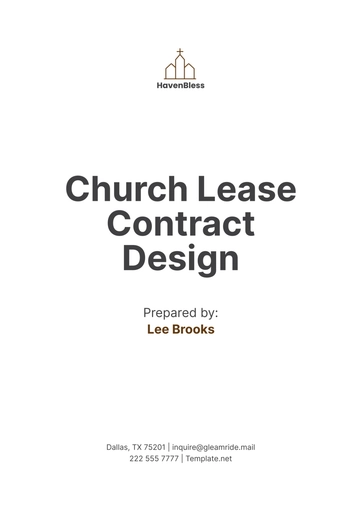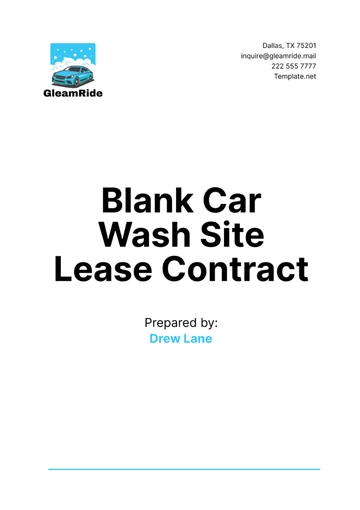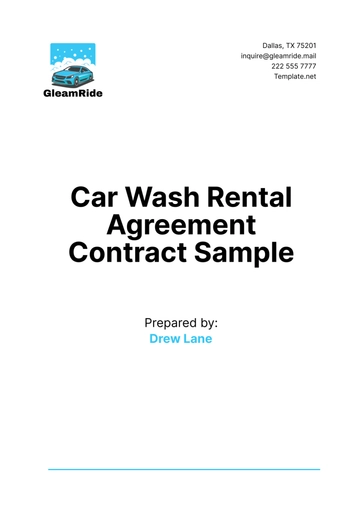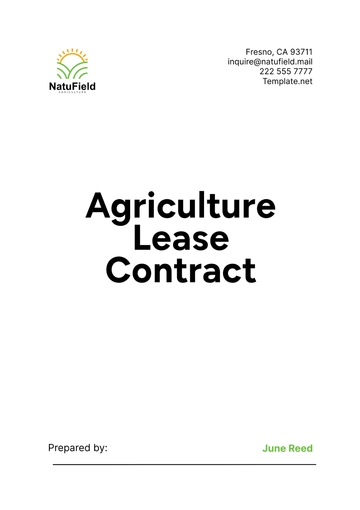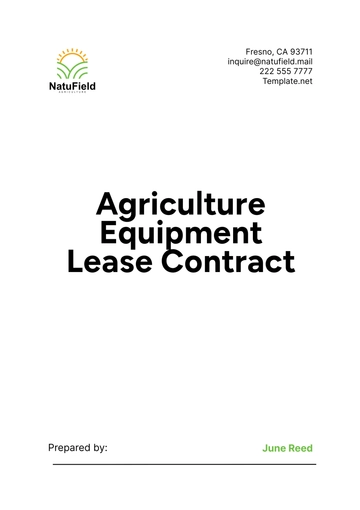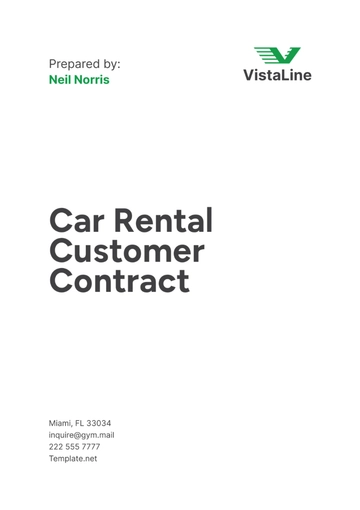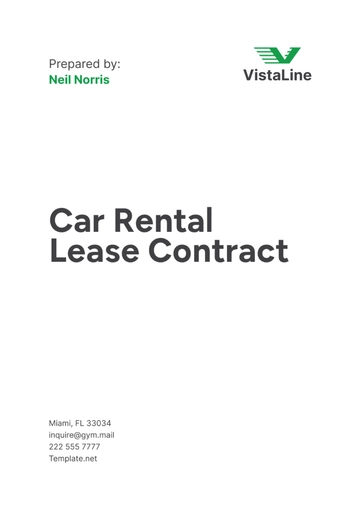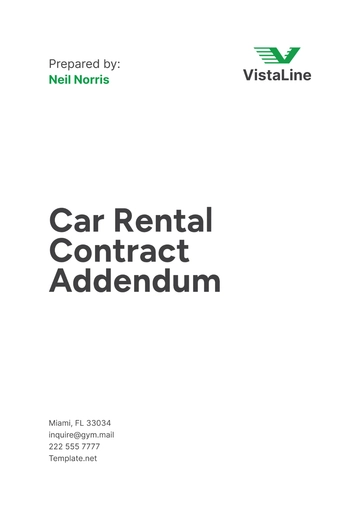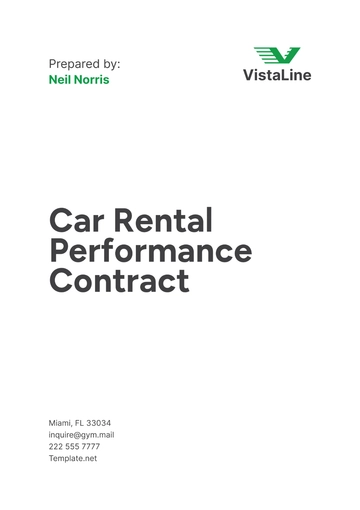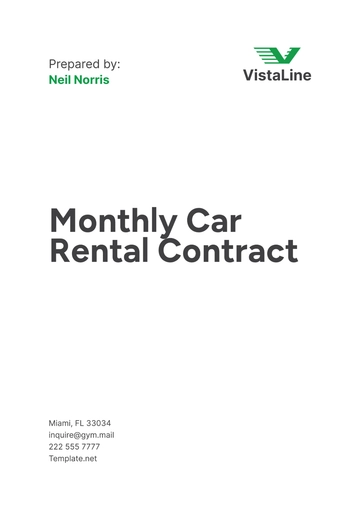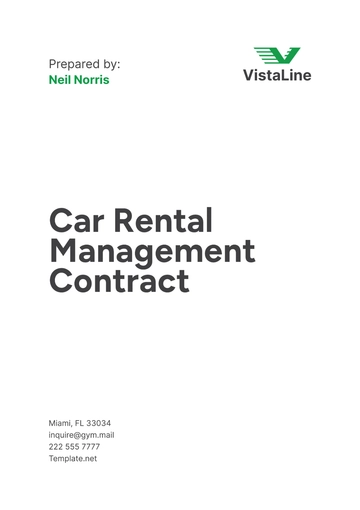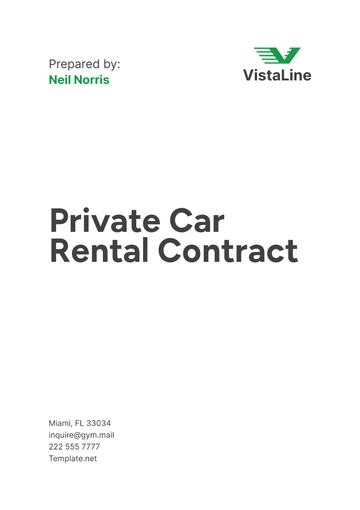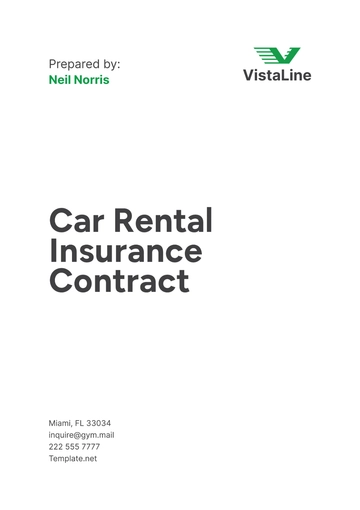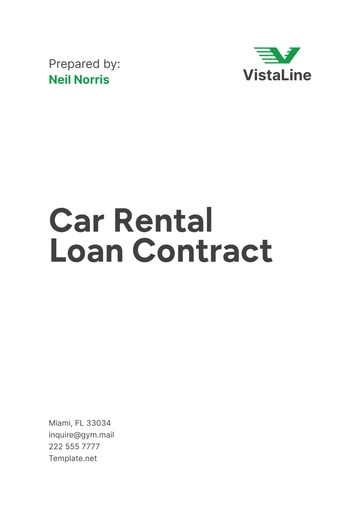Free Car Rental Insurance Contract
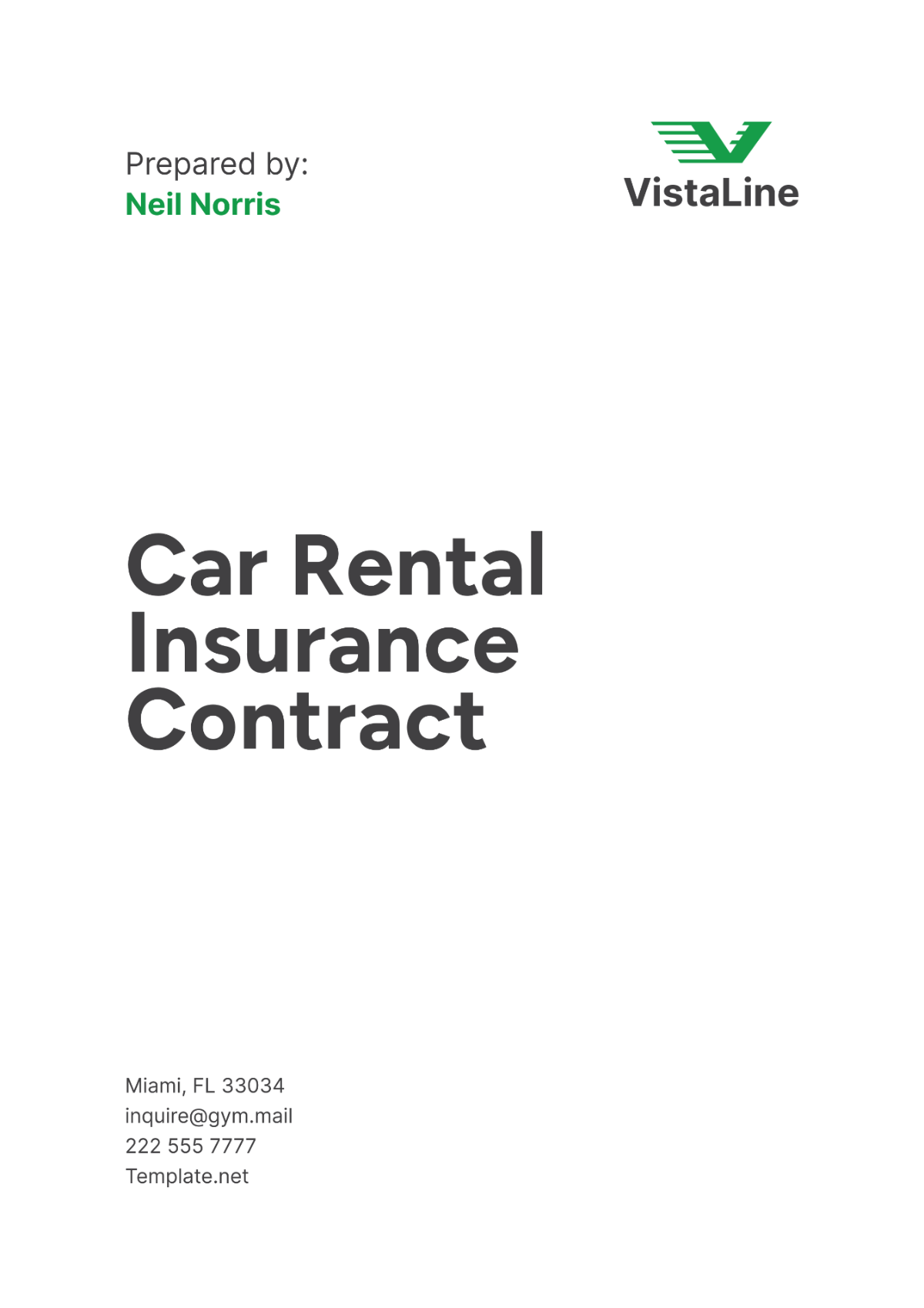
I. The Parties
This Car Rental Insurance Contract ("Contract") is made and entered into on [Month Day, Year] ("Effective Date") by and between [Your Company Name] hereinafter referred to as the ("Company") with a primary place of business at [Your Company Address] and [Insurance Provider's Name] hereinafter referred to as the ("Insurance Provider") with a primary place of business at [Insurance Provider's Address] collectively referred to as the ("Parties").
WHEREAS, the Company is engaged in the business of renting vehicles to customers ("Renters").
WHEREAS, the Insurance Provider is in the business of providing various types of insurance coverages, including but not limited to vehicle insurance.
WHEREAS, the Parties wish to enter into this Contract to offer insurance coverage for rental vehicles in a mutually beneficial manner.
NOW THEREFORE, in consideration of the mutual covenants and promises set forth herein, the Parties agree as follows:
II. Coverage Types
A. Collision Damage Waiver (CDW)
Coverage Description: The Insurance Provider shall offer a Collision Damage Waiver option covering the rental vehicle from damages that occur during the rental period. This coverage protects the Company from financial losses due to vehicle damages.
Inclusions: The coverage will include damages to the vehicle's body, wheels, and internal machinery. It ensures comprehensive protection for the vehicle's essential parts.
Exclusions: The CDW shall not include coverage for personal injury to the driver or passengers. This limitation keeps the focus on vehicle repair costs only.
Deductible: This waiver is subject to a deductible of [$500.00] per incident. The deductible amount must be paid by the renter in case of a claim.
Daily Charge: The CDW charge shall be [$20.00] per rental day. This fee is added to the overall rental cost.
Acceptance Requirement: The CDW must be accepted or declined at the time of vehicle rental. Renters need to make a decision about CDW coverage upfront.
B. Liability Protection
Coverage Scope: The Insurance Provider will provide liability protection which covers third-party injuries and damages. This coverage ensures protection against legal liabilities arising from accidents.
Bodily Injury: The liability protection will include coverage for bodily injury up to [$100,000.00] per person. This ensures that substantial medical costs can be covered.
Property Damage: The liability protection will include coverage for property damage up to [$300,000.00] per incident. This covers extensive damages caused to third-party property.
Exclusion of Personal Injuries: The liability coverage does not cover injuries to the driver and passengers of the rental vehicle. This keeps the focus on third-party liabilities only.
Premium Charge: This protection carries a premium of [$15.00] per rental day. This fee is included in the overall rental cost.
C. Personal Accident Insurance (PAI)
Medical Expenses Coverage: The Insurance Provider offers Personal Accident Insurance to cover medical expenses for the driver and passengers. This coverage provides financial relief in case of injuries during the rental period.
Coverage Limit: PAI covers up to [$5,000.00] in medical expenses per individual involved in an accident. This ensures that minor to moderate medical costs are covered.
Inclusions: The coverage includes ambulance fees and emergency medical services. This ensures that immediate medical needs are met.
Daily Premium: PAI is available at a premium of [$8.00] per rental day. This cost is added to the rental fee.
Selection Requirement: PAI must be selected at the commencement of the rental period. Renters need to opt for this coverage when they start their rental agreement.
III. Terms and Conditions
A. Policy Duration
Coinciding with Rental Period: The duration of the insurance policy shall coincide with the rental period of the vehicle. This ensures that coverage is provided only for the time the vehicle is rented.
Automatic Extension: Extensions to the rental period will automatically extend the insurance coverage. Renters are assured continuous coverage if their rental period is prolonged.
Policy Voidance: The policy is void if the rental contract is terminated prematurely. Early termination of the rental agreement results in the cessation of insurance coverage.
Coverage Time Frame: Coverage begins at the rental start date and ends at the rental return date. The insurance is active only during the official rental period.
B. Exclusions
Intentional Acts and Negligence: The insurance policy will not cover any loss or damage due to intentional acts or gross negligence. Renters must avoid reckless behavior to maintain coverage.
Unauthorized Drivers: No coverage shall be provided for losses arising from unauthorized drivers or use of the vehicle. Only authorized individuals can benefit from the insurance.
Illegal Activities: Damages occurring while the vehicle is used for illegal activities are excluded. Illegal use of the rental car voids the insurance.
Geographical Limitations: Coverage is void if the vehicle is driven outside the designated geographical area. Renters must adhere to specified driving boundaries to maintain coverage.
IV. Premiums
A. Premium Rate
Calculation Basis: The insurance premium shall be calculated based on the duration of the rental period. Renters pay for coverage in relation to how long they rent the vehicle.
Standard Rate: The standard rate shall be [$20.00] per day for complete insurance coverage. This fee encompasses all types of coverage offered.
Notice for Changes: Premium rates may be subject to change with a [30]-day notice to the Company. Renters will be informed of any rate adjustments well in advance.
Written Communication: Any changes in premium rates must be communicated in writing. Formal communication ensures clarity and understanding.
Collection by Company: Premium payments shall be collected by the Company at the time of vehicle rental. Renters pay their premiums upfront.
B. Payment Terms
Remittance Schedule: The Company shall remit collected premiums to the Insurance Provider within [15] days of collection. Timely remittance ensures that the insurance provider receives funds promptly.
Penalty for Late Payments: Late payments shall incur a penalty of [2]% per month on the outstanding amount. This encourages the Company to remit premiums on time.
Payment Method: All payments must be made via electronic transfer to the Insurance Provider’s bank account. Electronic transfers ensure quick and secure payments.
Documentation Requirements: The Company shall provide full documentation of collected premiums upon payment. Proper documentation ensures transparency and accountability.
C. Premium Adjustments
Annual Review: Premium rates shall be reviewed annually to ensure they remain fair and competitive. Regular reviews help maintain appropriate pricing.
Adjustment Criteria: Adjustments may be made based on market trends, claim history, and inflation rates. These factors ensure that premium rates are justifiable.
Customer Notification: Renters shall be notified of any premium adjustments at least [30] days in advance. This gives customers ample time to understand new rates.
Written Agreement: Any premium adjustments must be agreed upon in writing by both Parties. Formal agreements maintain contractual clarity.
V. Claims
A. Reporting
Incident Reporting: All claims must be reported within [24] hours of the incident. Prompt reporting ensures timely processing of claims.
Immediate Notification: The Company shall notify the Insurance Provider immediately upon receiving a claim from a Renter. Immediate notification helps in quick claim evaluation.
Claim Documentation: Claim reports must include incident details and any relevant documentation. Comprehensive reports facilitate accurate claim assessment.
Acknowledgment of Receipt: The Insurance Provider will acknowledge receipt of the claim within [48] hours. This acknowledgment reassures the Company of claim receipt.
B. Claim Processing
Processing Timeline: The Insurance Provider shall process valid claims within [30] days of receipt. Timely processing ensures that claims are settled promptly.
Compliance Evaluation: Claims shall be evaluated and settled in compliance with the terms outlined in this Contract. This ensures that all claims meet the agreed criteria.
Disbursement Process: Disbursements for settled claims will be made directly to the repair facility or claimant, as appropriate. Direct disbursements streamline the payment process.
Settlement Report: The Insurance Provider will provide a detailed claim settlement report to the Company. This report keeps the Company informed about the status of claims.
C. Dispute Resolution
Review Process: Any disputes regarding claims will be subject to review by both Parties. Joint reviews help in understanding and resolving disagreements.
Escalation to Arbitration: Disputes unresolved within [30] days shall be escalated to an independent arbitrator. Arbitration provides an unbiased resolution process.
Final Decision: The decision of the independent arbitrator will be final and binding. This ensures that disputes are conclusively resolved.
VI. Mutual Obligations
A. Confidentiality
Confidentiality Agreement: Both Parties agree to maintain the confidentiality of this Contract and any sensitive information exchanged. Confidentiality is crucial for protecting business interests.
Non-Disclosure: Confidential information shall not be disclosed to any third party without written consent from the other Party. Non-disclosure agreements maintain trust and security.
Survival of Obligation: Obligations of confidentiality shall survive the termination or expiration of this Contract. Long-term confidentiality ensures ongoing protection of sensitive data.
B. Compliance
Legal Compliance: Both Parties agree to comply with all applicable laws and regulations. Legal compliance is essential for the legitimacy of the Contract.
Licenses and Permits: The Insurance Provider shall maintain all necessary licenses and permits to provide the insurance coverage described herein. Proper licensing ensures the provider's authority to offer coverage.
Customer Information: The Company shall ensure that Renters are informed of the available insurance options and coverage terms. Clear information helps renters make informed decisions.
C. Regular Audits
Audit Frequency: Both Parties agree to conduct regular audits to ensure compliance with the terms of this Contract. Regular audits maintain adherence to agreed terms.
Audit Scope: Audits will include a review of premium payments, claims processing, and policy adherence. Comprehensive audits ensure thorough checks.
Audit Reports: Audit findings shall be documented and shared with both Parties. Documentation of audit results maintains transparency.
Corrective Actions: Any discrepancies found during audits shall be rectified promptly. Timely corrective actions maintain contractual integrity.
VII. Termination
A. Termination for Cause
Breach of Contract: Either Party may terminate this Contract if the other Party breaches any material term or condition. Breaches must be addressed to maintain the integrity of the Contract.
Cure Period: The breaching Party shall have [30] days to cure the breach upon receiving written notice. This period allows for resolution of the issue.
Immediate Termination: Failure to cure the breach within the specified period shall result in immediate termination. This ensures that unresolved breaches lead to prompt action.
B. Termination for Convenience
Notice Requirement: Either Party may terminate this Contract for convenience by providing [90] days' written notice to the other Party. Advance notice ensures an orderly termination process.
Obligations Up to Termination: Termination for convenience shall not affect any obligations accrued prior to the termination date. Pre-termination obligations remain valid and enforceable.
Premium Remittance: All premium payments collected up to the termination date shall be remitted to the Insurance Provider. Timely remittance ensures financial obligations are met.
C. Post-Termination Responsibilities
Final Settlement: Both Parties shall settle all outstanding claims and payments within [30] days of termination. Prompt settlements ensure closure of financial obligations.
Record Retention: The Company shall retain all records related to insurance coverage for a period of [3] years post-termination. Record retention ensures that necessary documentation is available.
Non-Compete Clause: Both Parties agree not to engage in similar contracts with direct competitors for a period of [1] year post-termination. This clause prevents immediate competition.
Return of Materials: All materials, documents, and proprietary information must be returned to the respective Party upon termination. Returning materials maintains security and confidentiality.
VIII. Indemnification
A. Company Indemnification
Third-Party Claims: The Company agrees to indemnify and hold harmless the Insurance Provider from any third-party claims arising from the Company's negligence. This includes any actions resulting from the Company's failure to adhere to agreed terms.
Legal Fees: This includes any legal fees and costs incurred in defending such claims. Legal defense costs are covered to ensure the Insurance Provider is not financially burdened.
Survival of Obligation: The indemnification obligation shall survive the termination or expiration of this Contract. Long-term indemnity ensures ongoing protection.
B. Insurance Provider Indemnification
Negligence Claims: The Insurance Provider agrees to indemnify and hold harmless the Company from any third-party claims arising from the Insurance Provider's negligence. This ensures that the Company is protected from liabilities caused by the Provider's actions.
Legal Costs: This includes any legal fees and costs incurred in defending such claims. Coverage of legal costs ensures that the Company is not financially strained.
Indemnification Survival: The indemnification obligation shall survive the termination or expiration of this Contract. This ongoing obligation ensures continuous protection.
C. Mutual Indemnity
Scope of Indemnity: Both Parties agree to indemnify each other for any breaches of this Contract. Mutual indemnity ensures balanced protection.
Inclusion of Costs: Indemnity includes all costs, damages, and legal fees incurred due to breaches. Comprehensive coverage ensures both Parties are financially protected.
Duration of Indemnity: Indemnity obligations shall last for [2] years post-termination of this Contract. This extended period ensures ongoing protection against past actions.
IX. Governing Law and Dispute Resolution
A. Governing Law
Applicable Law: This Contract shall be governed by and construed in accordance with the laws of the state of [State Name]. This ensures that both Parties operate under a known legal framework.
Jurisdiction: All legal matters arising from this Contract shall be resolved in the courts of [State Name]. Specifying jurisdiction ensures that legal actions are taken in a known legal environment.
Consent to Jurisdiction: Both Parties consent to the exclusive jurisdiction of the state and federal courts in [State Name]. This consent ensures that both Parties agree on the legal venue.
Amendments to Governing Law: Any changes to governing law clauses must be mutually agreed upon and documented. This ensures that both Parties are aware of and agree to any changes.
B. Dispute Resolution
Negotiation Attempt: In the event of any dispute arising out of this Contract, the parties shall first attempt to resolve the dispute through good faith negotiations. This initial step encourages amicable resolution.
Mediation Process: If negotiations fail, the dispute shall be submitted to mediation before a mutually agreed mediator. Mediation provides a collaborative approach to resolving conflicts.
Binding Arbitration: If mediation is unsuccessful, the dispute shall be resolved by binding arbitration in [State Name]. Arbitration provides a definitive resolution to conflicts.
Finality of Arbitration: The decision of the arbitrator will be final and binding. This ensures that disputes are conclusively resolved.
X. Miscellaneous
A. Entire Agreement
Comprehensive Agreement: This Contract constitutes the entire agreement between the Parties regarding the subject matter hereof. A comprehensive agreement ensures that all terms are clearly defined and agreed upon.
Written Amendments: Any amendments or modifications to this Contract must be in writing and signed by both Parties. This ensures that all changes are formally recognized and agreed upon.
Supersession of Prior Agreements: This Contract supersedes all prior agreements, understandings, and negotiations regarding the subject matter. It ensures that the current terms are the only ones in effect.
B. Severability
Validity of Provisions: If any provision of this Contract is found to be invalid or unenforceable, the remaining provisions shall continue in full force and effect. This ensures that the Contract remains operational even if one part is invalid.
Replacement of Invalid Provision: The Parties shall negotiate in good faith to replace the invalid or unenforceable provision with a valid one that reflects the original intent. This maintains the original intent of the Contract.
Impact on Remaining Provisions: The enforceability of the remaining provisions shall not be affected by any such invalidity. This ensures the rest of the Contract remains intact.
C. Amendments
Written Consent Required: Any amendments to this Contract require mutual written consent. This ensures that both Parties agree to and acknowledge any changes.
Documentation of Amendments: All amendments must be in writing and signed by both parties. Proper documentation ensures clarity and enforceability of changes.
Oral Modifications: Oral modifications are not binding unless documented in writing. This ensures that all changes are formally recognized.
D. Notices
Notice Delivery: All notices and other communications required or permitted under this Contract shall be in writing and delivered to the addresses provided above. Proper delivery methods ensure that notices reach the intended recipient.
Delivery Methods: Notices may be sent by certified mail, overnight courier, or email with a receipt confirmation. These delivery methods ensure that notices are received and acknowledged.
Effectiveness of Notices: Notices shall be deemed effective upon receipt by the receiving party. This ensures that the delivery of notices is acknowledged and effective.
E. Record Keeping
Maintenance of Records: Both Parties agree to maintain accurate records related to this Contract for a period of [3] years. Accurate record-keeping ensures that all contractual activities are documented.
Access to Records: Each Party shall have the right to access the other's records related to this Contract upon reasonable notice. This ensures transparency and accountability.
Record Audits: Periodic audits of records shall be conducted to ensure compliance with this Contract. Regular audits maintain adherence to agreed terms.
Record Confidentiality: All records shall be kept confidential and shall not be disclosed to third parties without consent. This ensures that sensitive information is protected.
XI. Signatures
IN WITNESS WHEREOF, the Parties have executed this Contract as of the Effective Date.
Company

[Authorized Representative Name]
[Your Company Name]
Date: [Month Day, Year]
Insurance Provider

[Authorized Representative Name]
[Insurance Provider's Name]
Date: [Month Day, Year]
- 100% Customizable, free editor
- Access 1 Million+ Templates, photo’s & graphics
- Download or share as a template
- Click and replace photos, graphics, text, backgrounds
- Resize, crop, AI write & more
- Access advanced editor
Protect your business with our Car Rental Insurance Contract Template from Template.net! This template includes all necessary clauses and conditions. Fully editable and customizable, it allows you to tailor the content to suit various policies. The advanced AI Editor Tool ensures quick and accurate contract creation, providing comprehensive insurance protection!
You may also like
- Rental Contract
- Contractor Contract
- Contract Agreement
- One Page Contract
- School Contract
- Social Media Contract
- Service Contract
- Business Contract
- Restaurant Contract
- Marketing Contract
- Real Estate Contract
- IT Contract
- Cleaning Contract
- Property Contract
- Supplier Contract
- Partnership Contract
- Food Business Contract
- Construction Contract
- Employment Contract
- Investment Contract
- Project Contract
- Payment Contract
- Student Contract
- Travel Agency Contract
- Startup Contract
- Annual Maintenance Contract
- Employee Contract
- Gym Contract
- Event Planning Contract
- Personal Contract
- Nursing Home Contract
- Law Firm Contract
- Work from Home Contract
- Software Development Contract
- Maintenance Contract
- Music Contract
- Amendment Contract
- Band Contract
- DJ Contract
- University Contract
- Salon Contract
- Renovation Contract
- Photography Contract
- Lawn Care Contract
